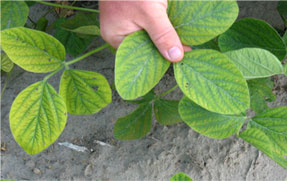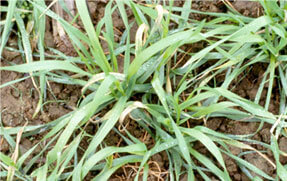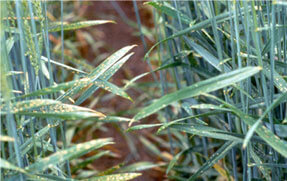All Micronutrient
Boron

Boron (B) exists primarily in soil solutions as the BO33 - anion - the form commonly taken up by plants. One of the most important micronutrients affecting membrane stability, B supports the structural and functional integrity of plant cell membranes. Boron-deficiency symptoms first appear at the growing points, and certain soil types are more prone to boron deficiencies.
Copper

Copper (Cu) activates enzymes and catalyzes reactions in several plant-growth processes. The presence of copper is closely linked to Vitamin A production, and it helps ensure successful protein synthesis.
Iron

Iron (Fe) is essential for crop growth and food production. Plants take up Fe as the ferrous (Fe2+) cation. Iron is a component of many enzymes associated with energy transfer, nitrogen reduction and fixation, and lignin formation.
Manganese

Manganese (Mn) functions primarily as part of enzyme systems in plants. It activates several important metabolic reactions and plays a direct role in photosynthesis. Manganese accelerates germination and maturity while increasing the availability of phosphorus (P) and calcium (Ca).
Molybdenum

Molybdenum (Mo) is a trace element found in the soil, and is required for the synthesis and activity of the enzyme nitrate reductase. Molybdenum is vital for the process of symbiotic nitrogen (N) fixation by Rhizobia bacteria in legume root modules. Considering molybdenum's importance in optimizing plant growth, it's fortunate that Mo deficiencies are relatively rare in most agricultural cropping areas.
Zinc

Zinc (Zn) is taken up by plants as the divalent Zn+2 cation. It was one of the first micronutrients recognized as essential for plants and the one most commonly limiting yields. Although Zn is required only in small amounts, high yields are impossible without it.
Chlorine

Plants take up chlorine (Cl) as the chloride (Cl-) anion. It's active in energy reactions in the plant. Most Cl- in soils comes from salt trapped in parent materials, marine aerosols and volcanic emissions. Classified as a micronutrient, Cl- is required by all plants in small quantities.
Nickel

Nickel (Ni) was added to the list of essential plant nutrients late in the 20th century. Nickel is important in plant N metabolism because it is a component of the urease enzyme. Without the presence of Ni, urea conversion is impossible. It is required in very small amounts, with the critical level appearing to be about 0.1 ppm.

 for Contacting us. We contact to as soon as.
for Contacting us. We contact to as soon as.